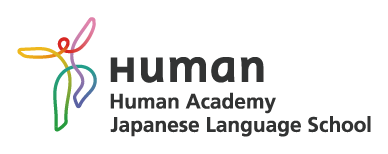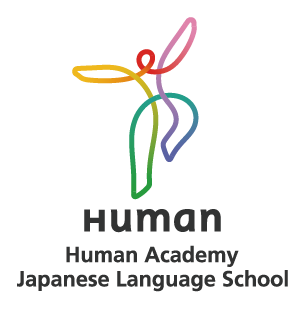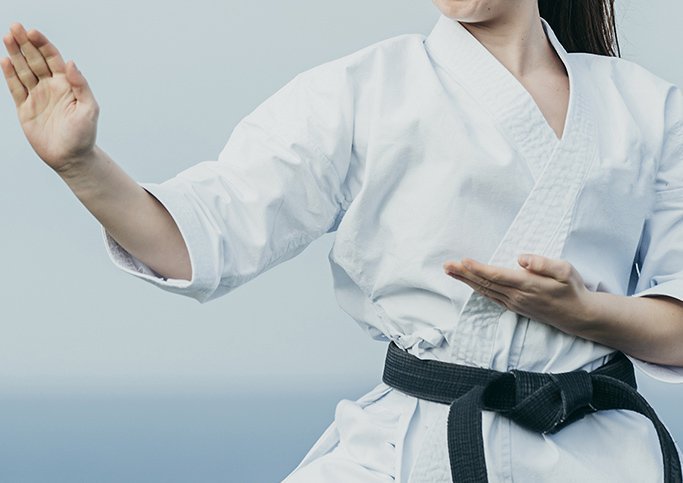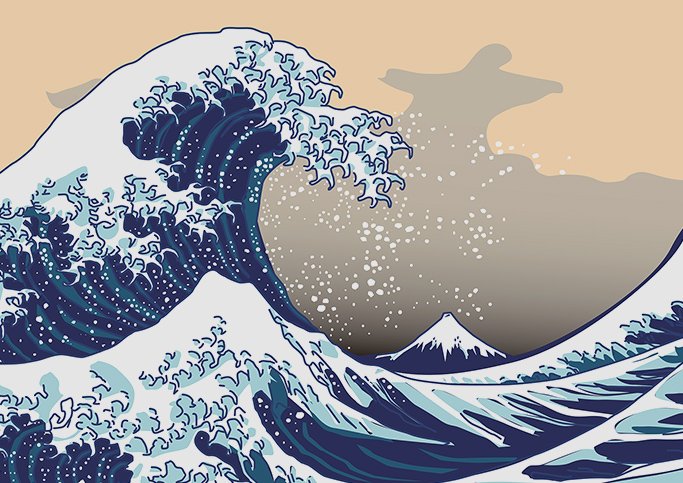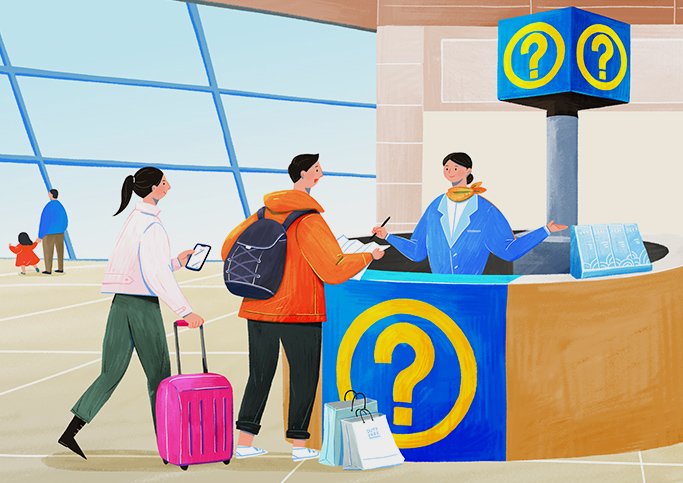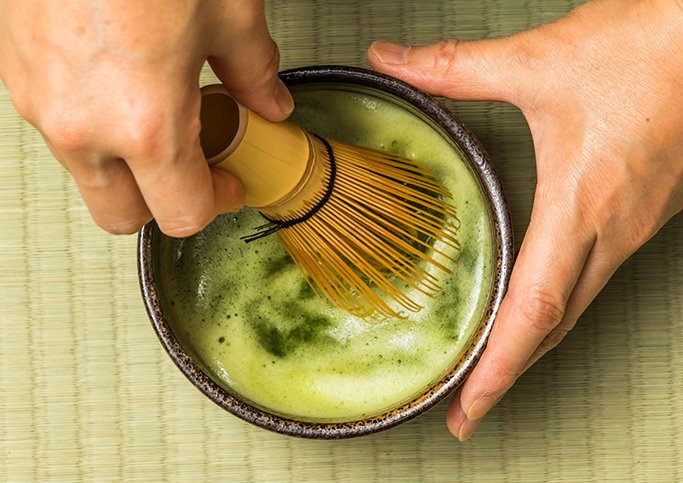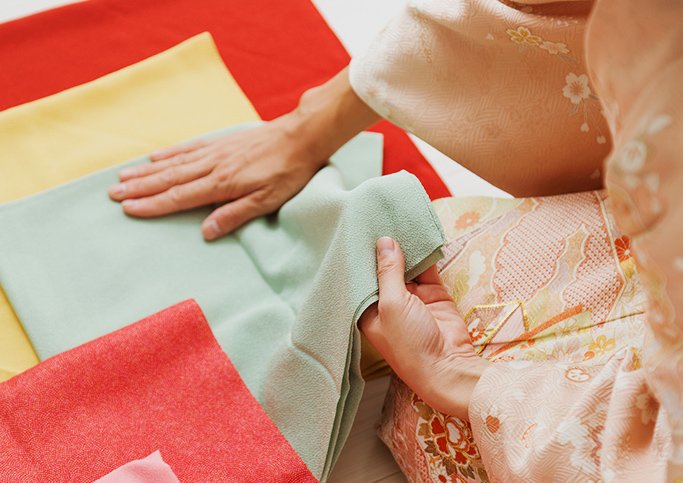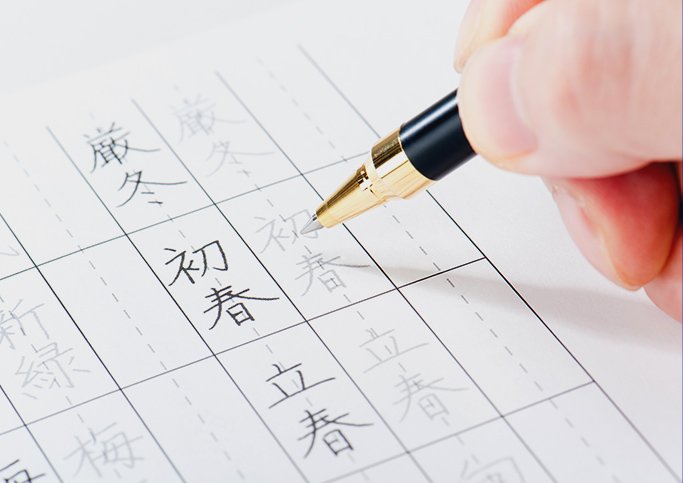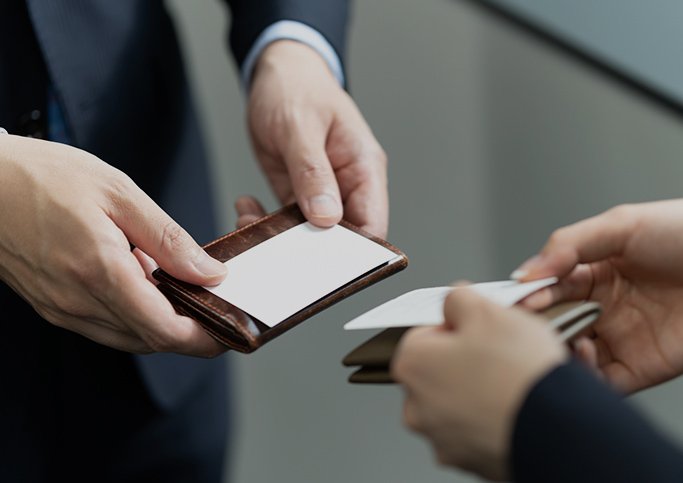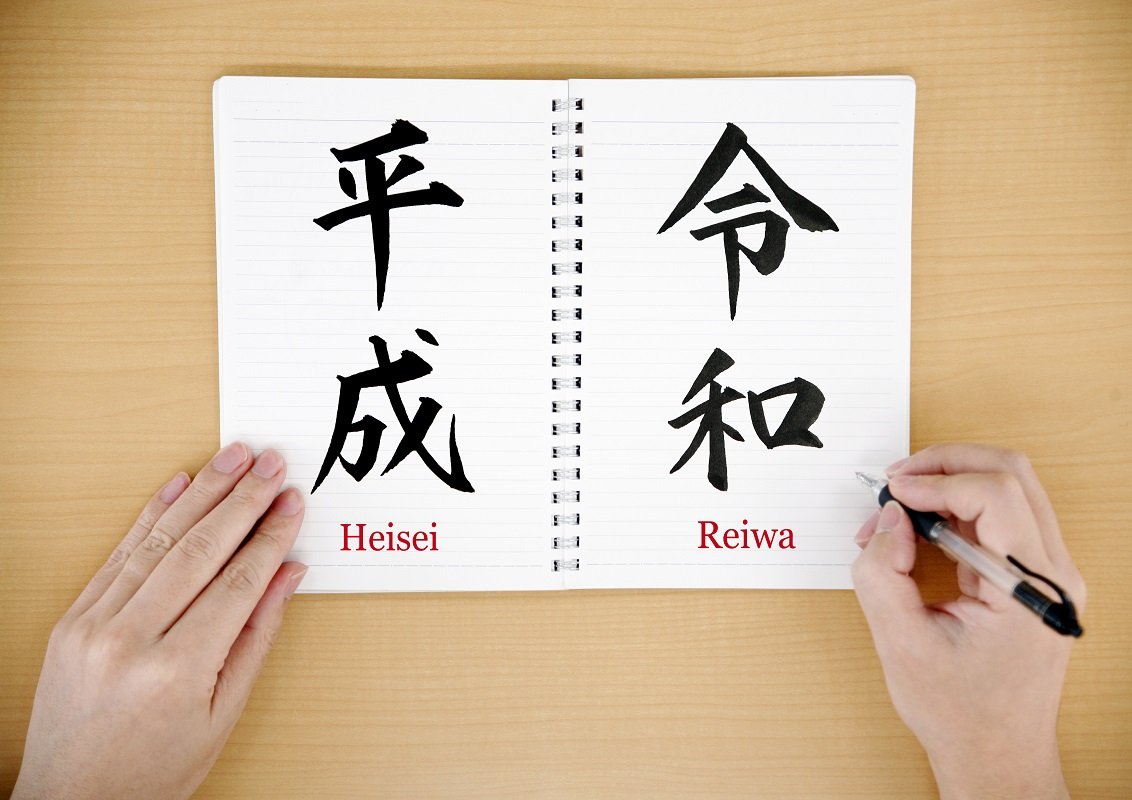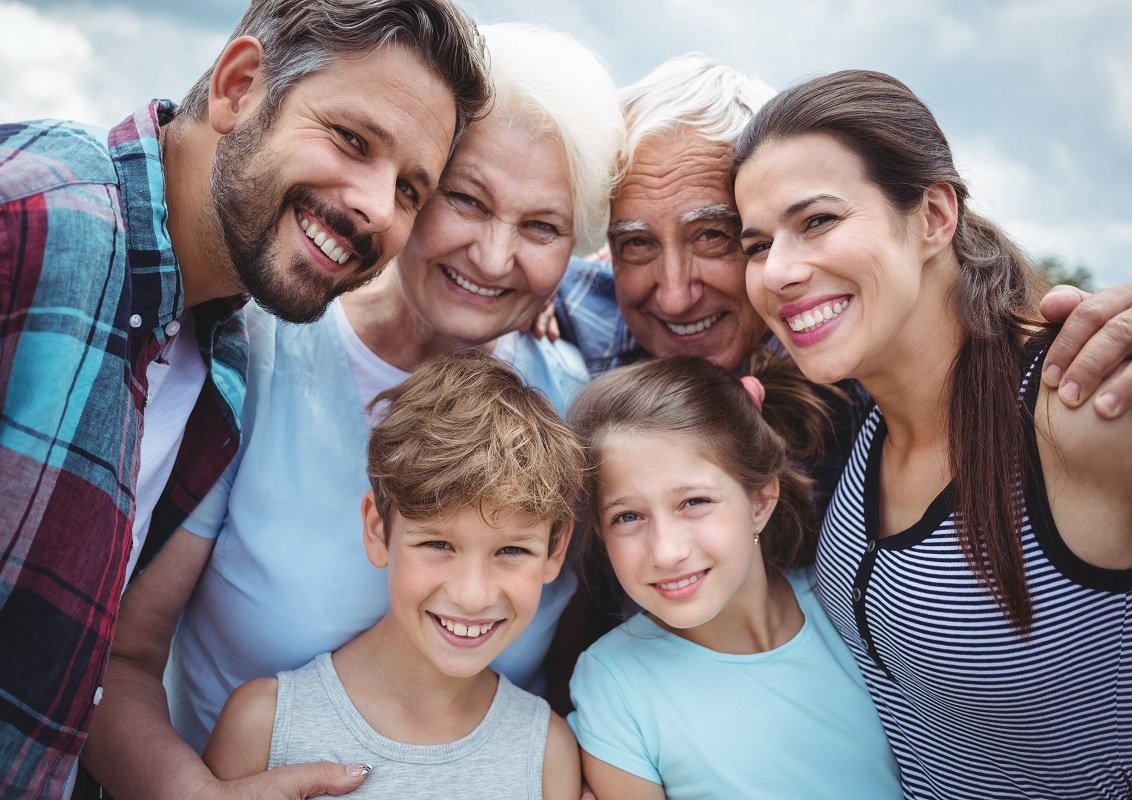
family
okāsan / mama / otōsan / nīsan / ojīchan… How to refer to family members in Japanese
7/ 9/2021
What are some of the ways to refer to family members in Japanese? In this article, we will explain how to call your mother, father, older brother, older sister, younger brother, younger sister, grandfather, and grandmother respectively.
1. How to call your mother
- お母さん (okāsan)
“お母さん” (okāsan) is a general term for a mother in Japanese. Some people call her ”母ちゃん” (kāchan) or ”母さん” (kāsan). There is also a very polite expression, ”お母様” (okāsama). ”お母様” (okāsama) is not used to call your own mother, but to call other mothers. When a daughter-in-law calls her mother-in-law, she sometimes uses ”お母様” (okāsama).
Example
お母さん、いつも温かく見守ってくれてありがとう。
Okāsan, itsumo atatakaku mimamotte kurete arigatō.
Thank you, Mom, for always watching over me warmly.
Example
母さん、夕飯まだ?
Kāsan, yūhan mada?
Mom, is dinner ready yet?
Example
明日はお母様の誕生日ですか?
Ashita wa okāsama no tanjōbi desu ka?
Is tomorrow your mother's birthday?
- おかん (okan)
“おかん” (okan) is a dialect of the Kansai region in Japan that is used to call a mother.
Example
おかん、ご飯まだ?
Okan, gohan mada?
Mom, is dinner yet?
- おふくろ (ofukuro)
“おふくろ” (ofukuro) is one of the ways of addressing a mother, and nowadays it is mainly used by men.
Example
おふくろが作ってくれたお弁当はおいしい。
Ofukruro ga tsukutte kureta obentō wa oishī.
The lunch which my mother makes is good.
- ママ (mama)
“ママ” (mama) is a slightly childish way of addressing a mother. Therefore, even if you use “ママ” (mama) as a child, it is often changed to ”お母さん” when you become an adult.
Example
ママ大好き!
Mama daisuki!
I love you, Mommy!
By the way, ”ママ” (mama) is sometimes used to call the hostess of a bar or tavern.
Example
ママ、いつものお酒お願い!
Mama, itsumo no osake onegai!
I’ll have my usual drink, please.
- 母上 (hahaue)
“母上” (hahaue) is a term of respect for a mother. In modern times, “母上” (hahaue) is rarely used. However, in some historical dramas, “母上” (hahaue) is still used.
Example
母上からのお便りを拝見しました。
Hahaue kara no otayori wo haiken shimashita.
I read a letter from my mother.
- 母 (haha)
“母” (haha) is a humble form of a mother and is used to refer to your own mother to others.
Example
うちの母がいつもお世話になっております。
Uti no haha ga itsumo osewa ni natte orimasu.
Thank you for always looking after my mother.
2. How to call your father
- お父さん (otōsan)
“お父さん” (otōsan) is a common Japanese term for a father. Like ”お母さん” (okāsan), he is sometimes referred to as ”父ちゃん” (tōchan), ”父さん” (tōsan), or ”お父様” (otōsama).
Example
お父さん、いつもお仕事頑張ってくれてありがとう。
Otōsan, itsumo oshigoto ganbatte kurete arigatō.
Dad, thank you for always working hard.
Example
お父様はお元気ですか?
Otōsama wa ogenki desu ka?
How are your father?
- おやじ (oyaji)
“おやじ” (oyaji) is a term used to refer to a father, and is mainly used by men. People who call their fathers “おやじ” (oyaji) often call their mothers ”おふくろ” (ofukuro).
Example
おやじ最近元気にしてる?
Oyaji saikin genki ni shiteru?
Is Dad well these days?
“おやじ” (oyaji) is sometimes used to mean “older man” rather than “father.”
Example
彼は随分おやじになったなあ。
Kare wa zuibun oyaji ni natta nā.
He's become quite an old man.
- おとん (oton)
“おとん” (oton), like ”おかん (okan), is a dialect word in the Kansai region of Japan used to call a father.
Example
おとん、今日は何をしてたの?
Oton, kyō wa nani wo shiteta no?
What did you do today, Dad?
- パパ (papa)
“パパ” (papa), like ”ママ” (mama), is mainly used by children to call their fathers.
Example
私のパパはいつも優しい!
Watashi no papa wa itsumo yasashī!
My daddy is always gentle!
Example
君のパパはかっこいいね!
Kimi no papa wa kakkoī ne!
Your dad is cool!
- 父 (chichi)
“父” (chichi) is a humble form of a father, and like ”母” (haha), it is used to refer to your own father to others.
Example
父は昨年、会社を退職しました。
Chichi wa sakunen, kaisha wo taishoku shimashita.
My father left the company last year.
[日本のことが気になる?一緒に日本語を学びませんか?]
3. How to call your older brother
- 兄さん (nīsan)
“兄さん” (nīsan) is one of the ways to address an older brother.
Example
淳史兄さん、何か食べる?
Atsushi-nīsan, nani ka taberu?
You want something to eat, Atsushi?
Similar to “兄さん” (nīsan), ”お兄さん” (onīsan) is sometimes used to refer to “a young man,” even if he is not your brother.
Example
ちょっとそこのお兄さん。道を教えてほしい。
Chotto soko no onīsan. Michi wo oshiete hoshī.
Hey, there, young man. Could you show me the way?
- お兄ちゃん (onīchan)
“お兄ちゃん” (onīchan) is one of the ways to address an older brother. It is probably a more familiar term than ”兄さん” (nīsan). Some people call him ”兄ちゃん” (nīchan).
Example
浩一お兄ちゃん、一緒に遊んでよ!
Kōichi-onīchan, issho ni asonde yo!
Koichi, play with me!
- 兄貴 (aniki)
“兄貴” (aniki) is a friendly way of addressing an older brother.
Example
私の兄貴は頼れる存在です。
Watashi no aniki wa tayoreru sonzai desu.
My brother is a reliable person.
“兄貴” (aniki) is sometimes used to refer to a man who is older than you or the head of an organization, even if he is not your brother.
Example
兄貴にどこまでもついていきます!
Aniki ni doko made mo tsuite ikimasu!
I'll follow you anywhere, chief!
4. How to call your older sister
- 姉さん (nēsan)
“姉さん” (nēsan) is one of the ways to address an older sister.
Example
綾乃姉さんはいつも元気だね!
Ayano-nēsan wa itsumo genkida ne!
You're always so cheerful, Ayano!
“姉さん” (nēsan) and ”お姉さん” (onēsan) are sometimes used to refer to “young women,” even if they are not your sisters.
Example
お姉さん!ビールちょうだい。
Onēsan! Bīru chōdai.
Hey Miss! Give me beer.
- お姉ちゃん (onēchan)
“お姉ちゃん” (onēchan) is one of the ways to call an older sister. It is a more familiar term than “姉さん (nēsan). Some people also call her ”姉ちゃん” (nēchan).
- 姉御 (anego)
“姉御” (anego) is one way of referring to an older sister, but nowadays it can also mean “a dependable woman.” A woman who is dependable and caring is often referred to as ”姉御肌” (anegohada).
Example
彼女は姉御肌で、みんなから好かれている。
Kanojo wa anegohada de, min'na kara sukarete iru.
She's a dependable person and loved by everyone.
5. How to call your younger brother and sister
Most older brothers and sisters call their younger brothers, ”弟” (otōto), and younger sisters, ”妹” (imōto), by their first names. For example, if someone has a younger brother whose name is ”太郎” (Tarō), he/she would call him ”太郎” (Tarō).
Example
太郎!お母さんの言うことを聞かないとダメだよ!
Tarō! Okāsan no iu koto wo kikanaito dameda yo!
Taro! You have to listen to your mom!
6. How to call your grandfather and grandmother
- おじいちゃん、おばあちゃん (ojīchan, obāchan)
“おじいちゃん” (ojīchan) is used to refer to a grandfather, and ”おばあちゃん” (obāchan) is used to refer to a grandmother. Some people call them ”じいちゃん、ばあちゃん” (jīchan, bāchan).
Example
夏休みはおじいちゃんの家に遊びに行きます。
Natsuyasumi wa ojīchan no ie ni asobi ni ikimasu.
During the summer vacation, I go to visit my grandpa's house.
- じいじ、ばあば (jīji, bāba)
“じいじ” (jīji) is a familiar term for a grandfather, and ”ばあば” (bāba) is a familiar term for a grandmother. It is often used by children to call their grandfather and grandmother.
Example
早くじいじとばあばに会いたいなあ。
Hayaku jīji to bāba ni aitai nā.
I want to see my grandpa and grandma soon.
In Japanese, there are many ways to call your family members. Other than this, do you know what to call your aunt or uncle, great-grandfather or great-grandmother in Japanese?
If you are interested in the Japanese language, why don't you sign up for a free membership to Human Academy Japanese Language School Plus. You can experience practical Japanese lessons by experienced teachers for free.
CATEGORIES
FEATURED TAGS
RECOMMENDATION
-
 報BUSINESS TERMS
報BUSINESS TERMSWhat is ”Ho-Ren-So”, one of the basic manners when working in Japan?
10/30/2020
-
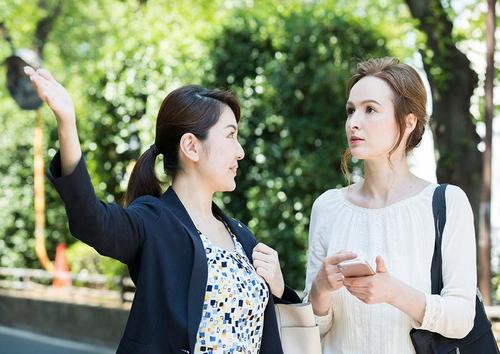 伝WORDS & GRAMMAR
伝WORDS & GRAMMARWhat is easy Japanese?
10/30/2020
-
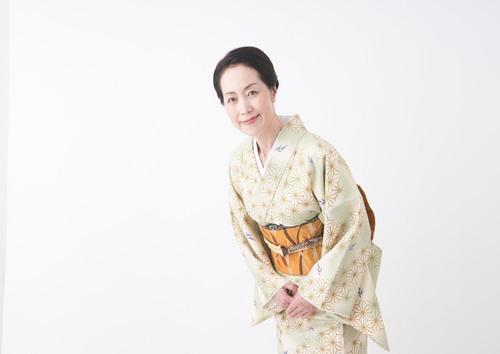 礼MANNERS
礼MANNERSJapanese greeting customs and origins. What are the greetings from other countries?
10/30/2020
-
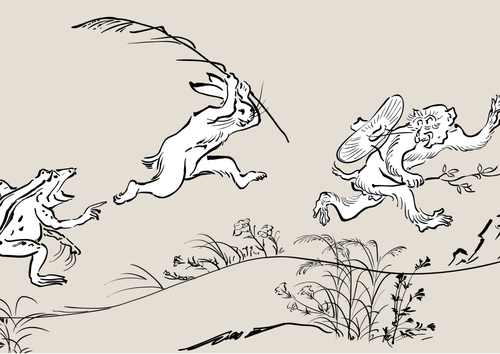 戯COMIC & GAME
戯COMIC & GAMEThe roots of animation and manga? Introducing bird and beast caricatures
10/30/2020
-
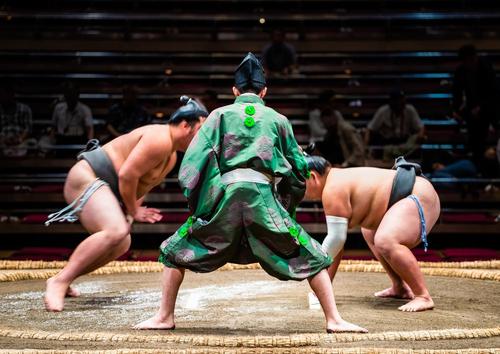 戦SPORTS
戦SPORTSThe history of sumo goes back to the mythical world! ?? Transition from myth to modern times
10/30/2020
LET’S PLAY
KARUTA!
Do you know the meaning of this...
NEXT...
FURTHER EXPLORATION
INTERESTED
IN JAPAN?
WHY DON’T YOU
LEARN JAPANESE WITH US?
START LEARNING
JAPANESE
WITH HUMAN ACADEMY!
ONE OF
THE MOST POPULAR
JAPANESE
LANGUAGE SCHOOLS
JAPANESE
LANGUAGE SCHOOL
OFFERING EXCELLENT
DETAILED LESSONS

ONLINE SCHOOL
- Learn with your classmates from all over the world
- Variety of Courses for All Needs
- FREE Trial Lesson available

TOKYO, OSAKA
- Offer the Best Curriculum for You
- Make New Japanese Learning Friends
- Many Opportunities to Practice Japanese
MAKE FURTHER
STEPS
WITH HUMAN ACADEMY!
ONE OF
THE MOST POPULAR
JAPANESE
LANGUAGE SCHOOLS
JAPANESE
LANGUAGE SCHOOL
PRODUCING MANY
JLPT N1 CERTIFIED
STUDENTS!

ONLINE SCHOOL
- Learn with your classmates from all over the world
- Variety of Courses for All Needs
- FREE Trial Lesson available

TOKYO, OSAKA
- Support Your Higher Goal of Japanese Learning
- Perfect Environment for Japanese Learners
- Learn with Your New Japanese Study Mates

